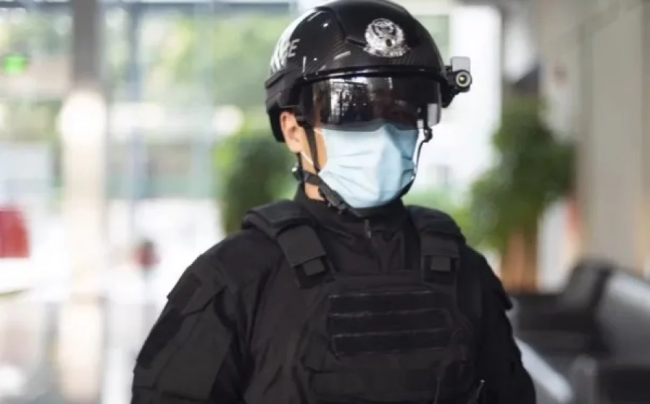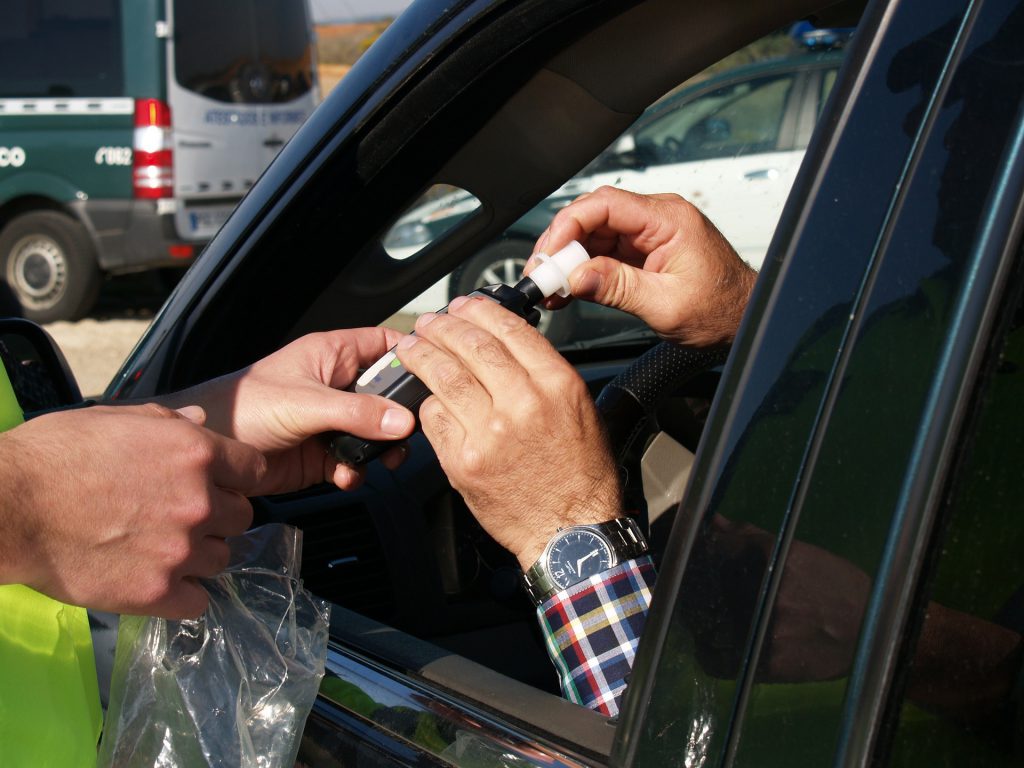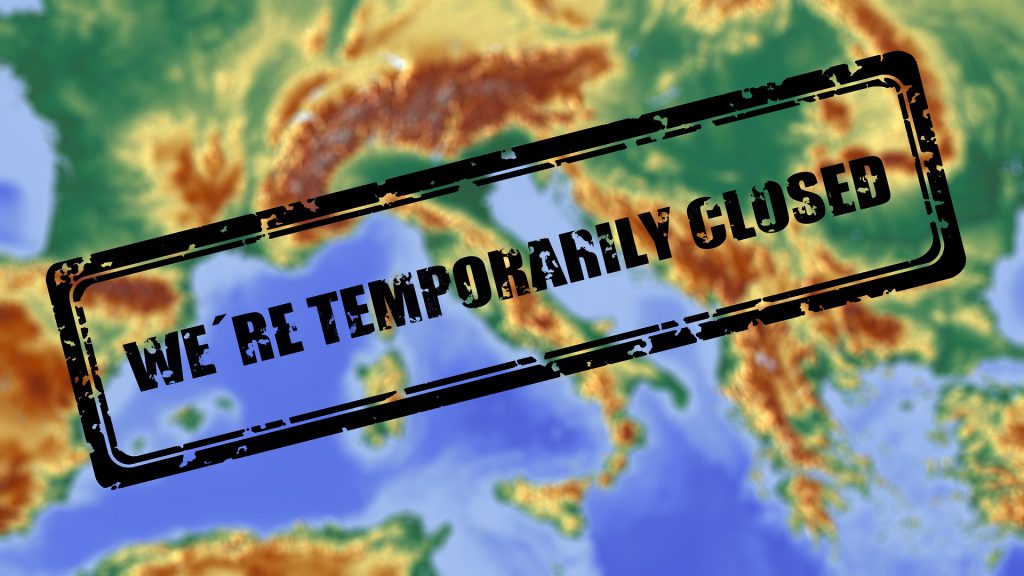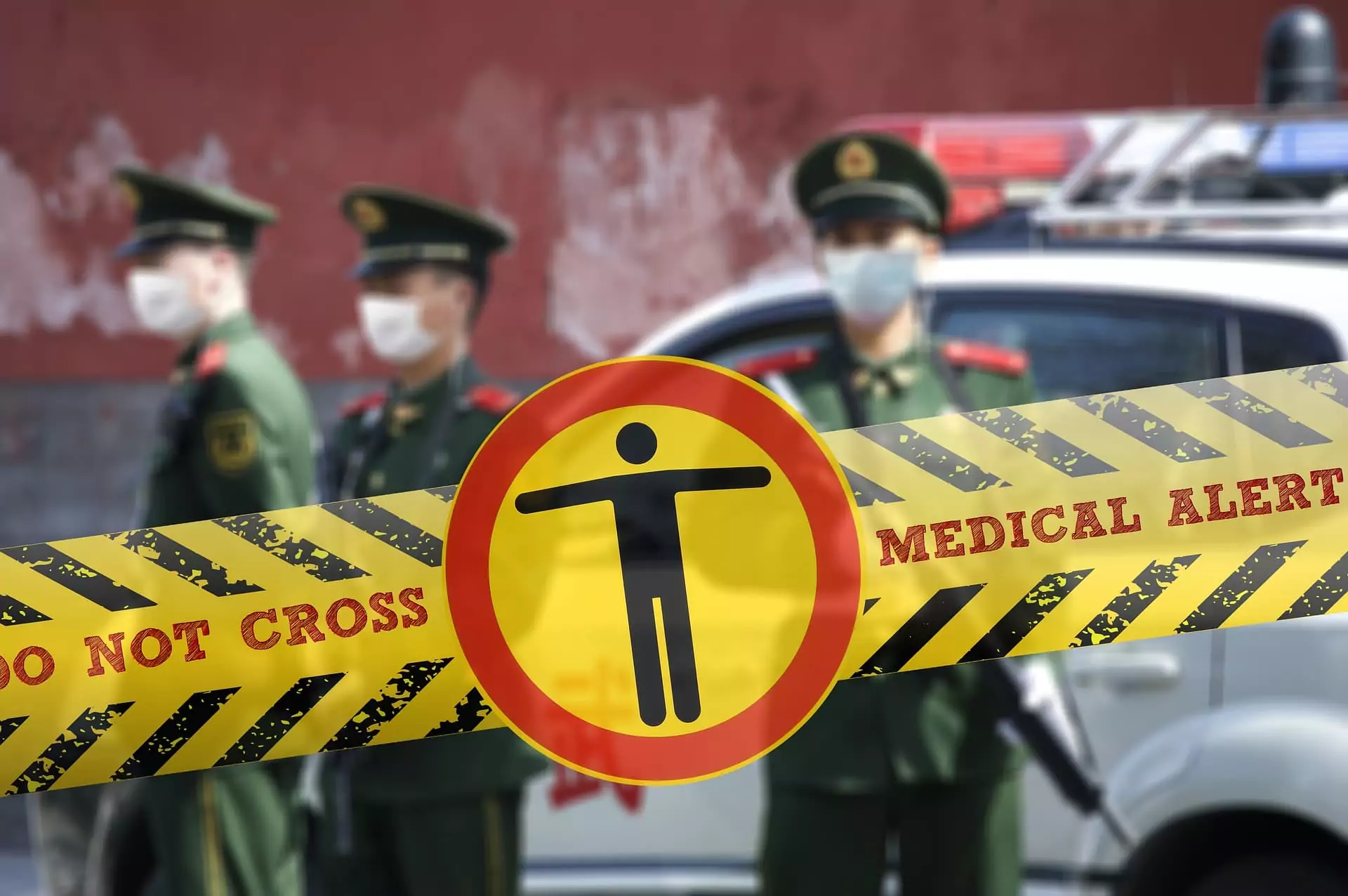The COVID-19 outbreak that began in China three months ago has now infected more than 118,000 people in 114 countries. Over 4,000 people have lost their lives, thousands more are fighting for their survival in hospitals, and the virus is officially now classed as a pandemic by the World Health Organization.
At such a testing time, police agencies around the world are using new strategies to help control this disease:
Chinese Police RoboCop-style

( Screenshot from Twitter of @sharonkgilbert )
China’s response to the virus has included many serious measures, including: Strict social distancing; more than a month of city-wide lockdowns of Wuhan and surrounding areas; extensive public monitoring of citizens; and various technology innovations.
For instance, Chinese policemen have been equipped with RoboCop-style Artificial Intelligence (AI) helmets that can automatically identify people who could have coronavirus.
The AI devices are fitted with a camera that is able to scan body temperatures. The helmet also has a speaker, which can relay messages to passers-by such as, your ‘maximum body temperature is 36.4 degrees Celsius, please pass.’
Chengdu official Liu Tao, an epidemic prevention and control officer, said a small alarm is triggered when somebody is scanned with a body temperature higher than 37.3 degrees Celsius.
The helmets were designed by technology firm Kuang-chi and have been used in several Chinese cities including Shanghai, Chengdu, and Shenzhen.
Polish Police´s New Strategy

Poland reported its first death from coronavirus on March 12th, according to local authorities in the city of Poznan. The country currently has 46 other confirmed cases of coronavirus, and new measures are therefore being taken to control the spread of the disease.
One of the planned strategies is to reduce the number of breath tests, says Radoslaw Kobrys, Deputy Inspector at the Polish Police’s road traffic division. The action has been taken after receiving information and guidance from the Interior Ministry’s sanitary service.
“Taking into account that every year we carry out almost 17 million tests, even if there is a minimal…decrease in the number of people tested this does not have a diametrical effect on what happens on Polish roads,” he said.
“If a police officer suspects that someone is under the influence of alcohol, he will test them.”
Italy´s Quarantine

Italy has put the country’s 60 million people on lockdown in the most drastic action taken outside China to tackle the spread of coronavirus. To date, the country has diagnosed more than 10,000 cases, second only to China.
Luciana Lamorgese, the Interior Minister, has ordered police to check whether travelers wishing to leave the “red zone” have valid work or health reasons to do so. The checks are to be conducted at airports, railway stations, and motorway toll stations, as well as at roadblocks.
Travelers are allowed to “self-certify” and police will provide them with forms in which they can explain the purpose of their journey.
The Italian authorities state that these measures are necessary to slow the spread of the virus and relieve the burden on healthcare systems. A report in The Guardian said 733 people were in intensive care in the Lombardy region, one of the worst affected regions, but it only has about 500 public health intensive care beds.

